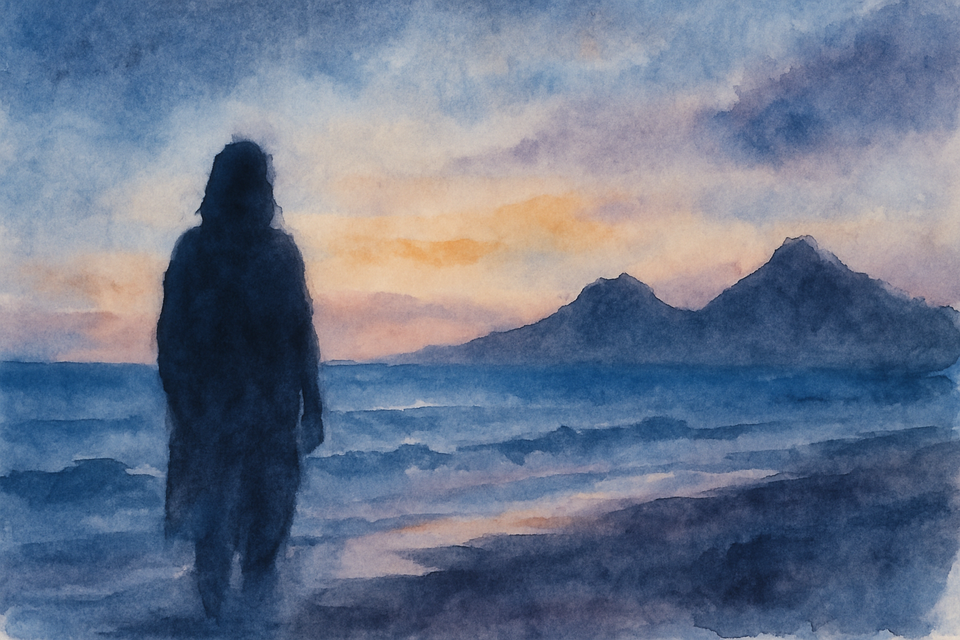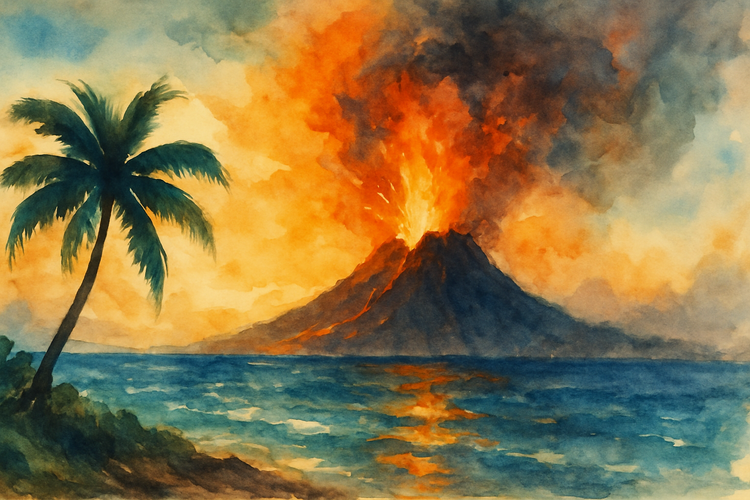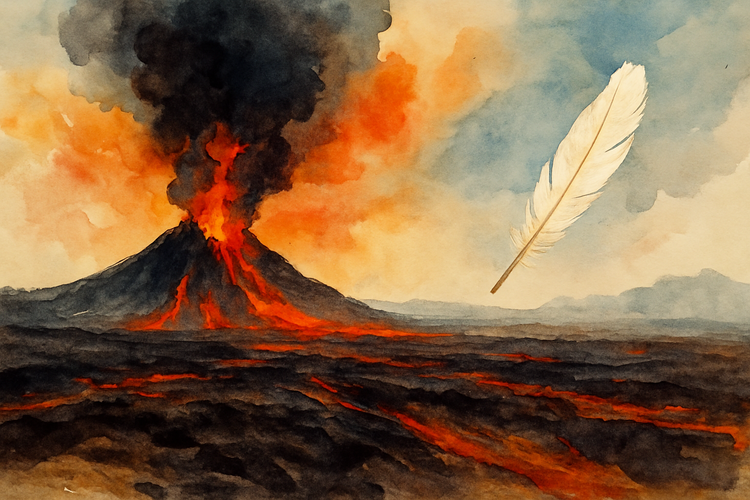Chief of War S1E1 "The Chief of War"

Spoiler Warning: This reflection reveals events from the premiere of Chief of War, where vision and betrayal shape the story’s tide.
A Vision on the Shore
The seer’s visitation on the beach lingers as the most haunting image of the premiere — a moment suspended between waking life and vision. Whether Ka’iana truly encountered her in the flesh or received her presence as a vision hardly matters; what matters is how the encounter charges the story with prophecy’s undeniable force. In Chief of War, prophecy is not background myth or a tool of empty manipulation. It is a living reality, breaking into the world with the weight of inevitability, even as its meaning remains elusive. From this first moment, Ka’iana is drawn back into currents larger than himself, pulled between skepticism and surrender to a destiny his people already believe has claimed him.
Prophecy as a Weapon
If the vision by the shore introduces prophecy as something real, the Maui council transforms it into something binding. Their summons to Ka’iana is not framed as a request but as the fulfillment of destiny — a destiny he never chose. The prophecy gives them language to demand obedience, cloaking political necessity in spiritual inevitability. Yet the show resists making this feel cynical; there is sincerity in their conviction, even reverence. What emerges is not simply manipulation but a collision of faith and survival, where belief in the vision becomes indistinguishable from the practical needs of a people weary of endless war.
The Weight of Return
For Ka’iana, the prophecy is not only a communal story but a personal wound. He walked away from the Maui, disillusioned by the king’s violence and shaken by his father’s death. His absence was not cowardice but a refusal to perpetuate cycles of bloodshed. Yet the prophecy drags him back, forcing him to shoulder the mantle of destiny he never sought. Here the fracture within him becomes stark: a son mourning the quiet dignity of his father’s bones, and a warrior called to take up arms once more. The premiere lingers in this tension, showing how grief and duty do not cancel each other but coexist, tearing Ka’iana in two.
Desecration and Brutality
The turning point comes when the prophecy is twisted into betrayal. Ka’iana, persuaded he is serving a divine vision, leads the Maui into what he believes is a sacred cause — only to watch it collapse into a massacre at the temple. In this moment, prophecy itself feels desecrated, transformed from promise into pretext for slaughter. The show refuses to soften the horror: women fight and fall alongside men, and the camera holds steady on the violence with a clarity that denies the audience any distance. By placing us squarely in the blood and smoke, Chief of War insists that prophecy’s corruption cannot be abstracted. It must be seen, felt, endured. And when the seer returns in the midst of this carnage, her eyes gone black, it reads like a warning — that the sacred will not remain undefiled, and that Ka’iana has stepped into a destiny far darker than the one he was promised.
Beauty and Tragedy Entwined
What makes this violence all the more striking is how beautifully it is filmed. The ocean glimmers with both serenity and menace; the shark hunt is rendered with visceral power and cinematic grandeur; even the scenes of carnage are framed with a painter’s eye. The show never lets us forget the natural beauty of Hawai‘i, even as it becomes the stage for betrayal and bloodshed. That tension — between the breathtaking landscape and the brutality it witnesses — heightens the sense of tragedy. The story unfolds with a clarity and force that feels at once timeless and deeply rooted in place, carried by visuals that are as reverent as they are unflinching.
A Tide That Cannot Be Escaped
What lingers after the first episode is the sense of story operating on multiple planes at once — sacred and political, personal and communal. Prophecy is not an abstract tale but a living force, binding Ka’iana to a destiny he cannot outrun. He is drawn back into a world he tried to leave behind, only to find its promises poisoned. The violence, shown without flinching, makes clear that this is not myth told at a distance but lived experience, brutal and immediate. The result is a tale that feels at once timeless and rooted — a tragedy unfolding with the inevitability of the tide, carrying Ka’iana and his people toward a future as unrelenting as the sea itself.



Comments ()